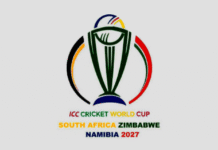
Australian organisers said postponing the men’s T20 World Cup cricket was “absolutely inevitable” Tuesday after the coronavirus pandemic forced the tournament to be delayed by a year.
After months of uncertainty, Cricket Australia welcomed the International Cricket Council’s decision, saying it provided clarity ahead of an upcoming home season which includes a blockbuster Test series against India.
Delaying the T20 World Cup also frees up a October-November slot in this year’s cricketing calendar which could be used to stage the Indian Premier League, possibly in the United Arab Emirates.
However, it is not clear whether the T20 World Cup will now be held in Australia or India, who were originally slated to hold the following edition in 2021 — which has been shifted to 2022.
COVID-19 has played havoc with international sport and CA acting chief executive Nick Hockley said there was no way Australia could host a 16-nation event with the pandemic still raging.
Under the new arrangements announced on Monday, either Australia or India will host the next T20 World Cup in October-November 2021, then the other nation will hold it in 2022.
The 50-over World Cup in India, originally due to be played in March-April 2023, will be pushed back to October-November of that year, with the final on November 26.
Hockley said CA did not have a preference for hosting the T20 tournament in 2021 or 2022.
“We just want to see two great events go ahead, whether it’s ’21 or ’22 in Australia I’m sure we’ll put on a fantastic event,” he said.
‘Challenging time’
ICC chief executive Manu Sawhney said moving back the 2023 World Cup avoided a fixture pile-up, which would have seen two major tournaments played within a few months of each other.
“It now just gives you a very clear gap between the various things, plus it helps us also make sure that we can plan the events… ensuring the health and safety for all the people concerned,” he said.
Hockley downplayed the impact of the changes on CA’s finances, saying this year’s T20 World Cup had merely been postponed, not cancelled.
“It’s been a challenging time for everyone… thankfully, we’re not talking about losing any events at all,” he said. “It’s really a case of them being held off until we can stage them successfully.”
He said the decision to allocate hosting duties between India and Australia in 2021 and 2022 would be made on health grounds and depended on the status of the pandemic.
“It goes back to safety and working with the latest and best available information,” he said. “It comes down to risk and giving ourselves as much certainty as possible.”
Hockley said Australia’s Test schedule remained unchanged, with a one-off match against Afghanistan in Perth late November followed by four Tests against India in December-January.
But he was doubtful the Australian government would accommodate India cricket chief Sourav Ganguly’s suggestion his superstar team undergo a shortened quarantine after arriving in the country, rather than the standard fortnight.
“I think that two-week quarantine period is pretty well defined,” Hockley said.
“What we’re working on is that even within that quarantine environment the players will have the absolute best training facilities, so their preparation for the matches is an optimal as it can possibly be.”









